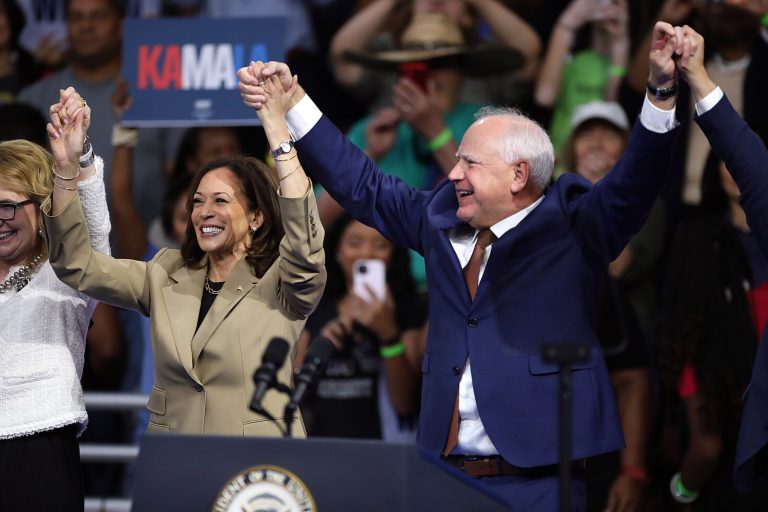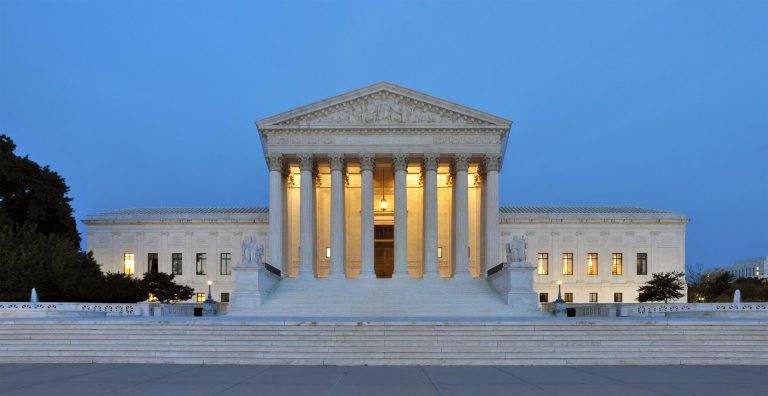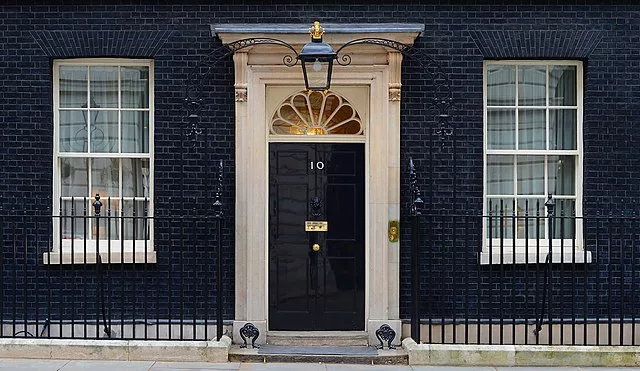It’s Trinity term, and you’re heading back to college after spending a sunny evening unwinding in University Parks. You get halfway down Parks Road and look to your left. In front of the Pitt Rivers lies the Palestine encampment. You look to your right and see fading on the walls of Keble College the message “Hands off Vietnam”. There’s a history of student protest at Oxford and you’re walking through it. Who were these student protestors? What did they protest for? How successful were they?
We start all the way back in February 1355 with perhaps the most pretentious cause for protest possible. At the Swindlestock Tavern, now the Santander at the top of Queen Street, a group of students were enjoying a drink to celebrate St Scholastica Day. Spryngeheuse and Chesterfield are two of these students, and they complained that the wine they were served was unsatisfactory. When the landlord of the tavern refused to serve them anything else, snobby Chesterfield threw a drink in his face and bedlam ensued. The pub brawl turned into mass rioting that lasted for three days with 30 townspeople and 63 students killed. All these deaths because a posh Oxford boy didn’t get his way. Not a great start to the legacy of student activism at this University.
In 1603, things got more political as Oxford University became a constituency with two Members of Parliament in the House of Commons. This leads us to our next incident of student protest in 1829 with Christ Church’s famous ‘No Peel’ door. The message, hammered into a door at the foot of the steps of the dining hall, was a response to Oxford MP Sir Robert Peel’s sudden support for Catholic Emancipation despite being elected on a platform of opposition to it. The upshot of the graffiti was that Peel lost his seat in a by-election held in February 1829. Oxford students holding their member of parliament to account — a much more principled protest than the drunken disagreement of just a few centuries prior. It’s a shame that the principle they were fighting for was religious oppression, but then again Christ Church does have a history of trying to vote away religious representation. This alternation between political protests and grouchy grievances defines student action at Oxford. Whilst global and political issues may change, the entitled student remains the same.
‘Free Speech’ is the cause of many protests at Oxford to this day, thanks to the ever problematic Union, but the first of these did not involve those at the self-declared “world’s most prestigious debating society” at all. In March 1926, the Vice-Chancellor of the University pushed two communist undergraduates to sign a paper pledging that they would not propagate their political views. This was met with great outrage not only within Oxford but also nationally. It was the main point of discussion at the Congress of the National Union of Students, at which Mr D. Barber from Cambridge said that “students of this country are not going to countenance any sort of intolerance of that nature”. Oxford is often accused of being rather insular, isolated, and self-interested, but here Oxford students began to find their feet on a wider national platform of student activism.
Nevertheless, insular, pretentious, out of touch Oxford remained and on the 7th March 1936, Pembroke students refused to eat in the hall for the first time in the college’s 300-year history. You’d be forgiven for assuming that the students took issue with the cost of the meals. However, the then JCR President Mr. Cartmell made it very clear that the problem was not the price, but the quality of dishes served. It seems Oxford students are historically fussy banqueters with very high standards. As a response to the protest, a new menu featuring potage dubarry and filet halibut marguerite was implemented for the following dinner, which satisfied the pompous Pembroke students. Hall saw a record attendance.
Student Activism in the UK at large ramped up in the 1960s, and Oxford did not stand on the sidelines. In June 1961, there was a protest by Oxford students against the actions of Portugal in Angola. The Portuguese had recently forced the cultivation of cotton as the only commodity crop, and this sparked massive civil unrest and widespread violence. The protestors secured an audience with the parliamentary private secretary to the Minister of State at the Foreign Office who told them they were right, and that Britain could not support the present policies of Portugal in Angola. This success ensured there was revolutionary energy through the decade which ended with some of the largest student demonstrations this country has ever seen. In March 1968, over 15,000 people marched in opposition to the Vietnam War from Oxford Street down towards Grosvenor Square, where 246 protestors were arrested. One of those arrested was then Wadham student and famous children’s author, Michael Rosen, who later wrote a poem for the Isis about the demonstration where he described being arrested and attacked by police. He and his flatmate Donald Macintyre, a Christ Church student, then attended the October protest alongside over 100,000 demonstrators. This decade saw the birth of mass student activism, and Oxford played its part. Indeed, until the 1990s student activism was hopeful and far-reaching. Students with Campaign Atom rallying against the US bombing of Libya in 1986 declared that they “fully expected to be arrested”. There was a real tenacity, drive, and willingness for self-sacrifice that is no longer seen today.
The turn of the century was dominated by protests about living costs and tuition fees as focus pivoted to domestic issues. Things began to escalate in October 1987 when students at Mansfield went on rent strike over rising costs as their daily rate was going up from £2.91 to an eye-watering £3.12. The most significant of the financial demonstrations was that of five students who refused to pay the £1,000 tuition fee in December 1998. The Stop the Fees Campaign organised rallies outside the Bod and over 2,000 students came out in support. Whilst Campaign Atom saw people willing to go to jail, one of the Oxford protestors famously said, “we don’t want to endanger ourselves to the point where we are simply becoming martyrs”. The move to introduce fees ploughed on and there was a growing sense that student campaigns didn’t really achieve much anymore. Even though more than 100 students occupied the Bod in February 2001, they were largely ignored and no policy changes were forthcoming. The failings of the Iraq protests compounded this feeling of powerlessness. Cherwell’s 2005 article entitled ‘A bleak future for student protest’ summed up the mood of the time. The successes of the Vietnam Solidarity Campaign seemed a distant reality given the ineffectiveness of recent movements. The potency of campaigning was coming into question and students’ commitment to it was wavering. Student protest at Oxford had lost its intensity and determination.
When everything seems a little flat and hopeless you can always count on the Union to do what it does best – invite disgraced bigots to give speeches. And in November 2007 that is exactly what they did. The Holocaust denier David Irving and chairman of the BNP Nick Griffin were the two chosen on this particular occasion. Naturally this sparked huge opposition from students, and alongside protests outside of the Union, many demonstrators made their way inside and orchestrated a sit-in protest from within the chamber. Student protest had some energy again. This was an Oxford-centric protest however, and all it did was create a media frenzy. Whilst it used to be the case that Parliament would listen to student protesters, now it seemed that only tabloids were interested in our thoughts. Take the 2010 austerity protests for example. On 10th November 2010, roughly 50,000 demonstrators marched through Central London in opposition to planned spending cuts to higher education and the increase of the cap on tuition fees. The then president of the OUSU David Barclay was quoted in the BBC article on the protests, but only 400 students from Oxford attended. Oxford University occupies a prominent space within the public debate, especially on student issues. There is a media privilege afforded to the Oxford student. But with such a small number attending the protest, it seems that no-one is willing to make use of it. Has the Oxford Student given up?
November 2017 saw a return to the spoiled, bratty protests that plague Oxford as Christ Church students were outraged that their bop was shut down almost an hour early. A college that once led the drive to oust a Member of Parliament was now throwing a tantrum over their special little party ending early. Was this what Oxford student protest had really come to? A Cherwell article published the same year urged people not to “indulge in protests” as “[t]hey have become a young adult fad with little, if no, effect”. Decades of having demands ignored by successive governments, as well as University and college administrators, led to such political indolence that bops were the only issue we could muster any anger about.
2020 brought an end to the idleness. There was a climate protest with students occupying the front quad of St John’s for five days. This was an important factor in the University agreeing to divest from fossil fuels and commit to a net-zero investment strategy. Moreover, the Rhodes Must Fall movement reached Oxford as protestors demanded to take down the statue of the imperialist Cecil Rhodes from the front of Oriel College. The story gained massive media coverage as it ticked two boxes. One, it was a story about Oxbridge, which news outlets seem never to get bored of. Two, it was a ‘culture war’ issue, which is a lazy journalist’s bread and butter. There was now vocal unrest within the university with activists using the spotlight afforded to them as Oxford students to campaign for issues and causes that matter.
Despite Covid-19 and its aftermath, student activism ramped up and in April 2022 a protest took place on Bonn Square against the exclusion of trans people from the ban on conversion therapy. Just a year after this protest was held in support of trans people, the ever out of touch Union decided to invite the transphobic Kathleen Stock to give a talk. As expected, this was hugely unpopular and the University’s LGBTQ+ Society organised a protest to vocalise this discontent. This generated a huge media storm, and everyone seemed to have an opinion on the matter, including the then Prime Minister. Oxford students were protesting loudly, and their slogans were being heard.
“From the River to the Sea…” is one of these slogans that has become very familiar. The first week of November 2023 saw two demonstrations in support of Palestine. On the 1st November, 1,500 protesters marched through Oxford towards Bonn Square, and on the 4th, there was a large gathering outside the Weston Library. Fast forward six months and the Pitt Rivers encampment is set up. Upon the establishment of the ‘liberated zone’, OA4P released a statement which speaks to the unique position of Oxford student protestors. It acknowledges the hand Oxford played in empire-building and how we continue to benefit from it. As students of this university, we walk through the same corridors as those who led us into Iraq, read in the same libraries as those who implemented economic policies of austerity, and dine in the same halls as those who wrote the Balfour Declaration. That is the history we are writing the next chapter of. The OA4P statement asks, “What is the cost of your silence?”. Refusing to speak out, campaign, and protest is allying yourself with the crop of Oxford students that have made the world we now inherit, and given the last Conservative government’s anti-protest legislation it seems they would like us to stay silent.
Ordinarily it is wealth that gives you influence over the establishment. Money gives you power, privilege, and status. But Oxford is the Establishment. Whilst it positions itself as a beacon of intellectual progression and freedom, its past mostly displays begrudging acceptance or outright suppression of protest. It’s churned out countless politicians, cabinet ministers, and Prime Ministers. It is the breeding ground for society’s elites. As members of the University, we benefit from this reputation. We as a student body are granted media attention, political capital, and societal respect. We’re given a platform not many get a chance to speak from. A poll conducted by Cherwell last year revealed that nine in ten respondents were open to attending a demonstration in the future. The opportunity for action is there. There are students who want to speak out, and platforms on which they can.
In 60 years time, when someone is walking down Parks Road and they look at the wall of Keble. Will they see the fading message “Hands Off Vietnam” and think, as we do, that was the last time a student protest actually achieved something? Or will there be a new legacy for them to inherit?











